Munich Riem racecourse
Entertainment with Tradition
The Munich Racing Club is one of the oldest existing clubs in Munich. It all began on May 9, 1865 on the Milbertshofen Heath. A flat and a chase race were held there at the suggestion of the later Chancellor Hohenlohe-Schillingsfürst, Count Gustav zu Castell and Heinrich zu Pappenheim. The interest exceeded all expectations, so that the Munich Racing Club was founded in the same year.
The Munich Racing Club has been based in Munich-Riem since 1897, and horse races have been held in the east of Munich ever since.
It all began on May 9, 1865 on the Milbertshofen Heath. A flat and a hunting race were held there at the suggestion of the later Chancellor Hohenlohe-Schillingsfürst, Count Gustav zu Castell and Heinrich zu Pappanheim. The interest exceeded all expectations, so that the Munich Racing Club was founded in the same year. With the support of King Ludwig II, races were held on the Oberwiesenfeld the following year. The events became increasingly popular with the people of Munich (the Munich Racing Club already had 448 members in 1870), and the area remained the home of Munich racing for around 20 years. However, the club management knew that the Oberwiesenfeld could only be an interim solution, because after all, on the parade ground of the Munich garrison, they were only a "tolerated" guest.
In 1895 the time had come: in the east of Munich, between the dreamy and still untouched villages of Riem and Dornach, a 156-acre site was purchased with the approval of the general meeting. The purchase price was 158,000 marks, and a further 200,000 marks were needed to build the track and the necessary structures, which were raised through interest-bearing share certificates. The contract to build the track was given to the Hamburg landscape engineer R. Jürgens, who had already built the tracks in Berlin-Karlshorst, Hamburg-Horn and Cologne-Weidenpesch. The flat track in Iffezheim was used as a model for the route, and the obstacle course was based on the then most modern model in Paris-Auteuil. When the Riem race track was handed over to the owner, Colonel Baron Max von Schacky, it cost 449,349 marks.
The Bavarian breeding race, which dates back to 1866, has a classic character and has been the pride of the Riemer community since then.
The Bayern Prize, for years the only Riemer comparison test for two-year-old and older horses, is being run for the first time.
The “Brown Ribbon of Germany” was advertised with a prize of 100,000 Reichsmarks (the prize in the Derby was only 60,000 Marks) and was one of the top events in Europe until the outbreak of the Second World War.
The year 1936 was unforgettable for many, when Nereide, the Derby winner who had been unbeaten in 10 races, left France's best older mare Corrida behind after a flawless race. While Nereide subsequently ended her racing career, Corrida won the Prix de l'Arc de Triomphe twice.
Due to war-related damage in Hamburg-Horn, the German Derby will be run in Riem.
The racing club celebrates its anniversary
The awarding of the Olympic Games to Munich suddenly opened up new horizons for the Munich Racing Club. The Olympic Committee was interested in moving parts of the equestrian program to Riem. So a deal was struck: the Racing Club made part of its grounds available, and in return a new grandstand and stable complex, including a sick bay, was built.
Olympic race day in Riem causes a great stir
Riem hosts 34 race days and generates 21.4 million marks in sales. Charly Seiffert wins 64 races in Riem alone (out of 277 starts).
Planned long in advance and held for the first time in Munich on October 11, 1987, was an electronics race day initiated by Werner Wolf and his brother Günther, which, under the title Silicon Bavaria, immediately set a new record for visitors and sales (over 30,000 spectators / 1,112,000 marks in sales). What's more: 50 minutes of live TV from Riem, the Trainer and Jockey Cup attracted athletes to Riem who you don't see every day. The commitment of the "rivals of the electronics industry" lasted three years before purely economic reasons in the computer industry caused the "sponsorship source" to dry up.
As president of the Munich Racing Club, it was Dietrich von Boetticher who successfully fought to ensure that the Bavarian Breeding Race, which was initially run as the Mercedes Benz Prize, was given Group I status in 1991.
Dietrich von Boetticher becomes president. Wolfgang Wille remains honorary president.
With the Grand Prix of Bavaria (Group I) and the Silver Whip (Group III), the Munich Racing Club has two new group races. Together with the Grand Dallmayr Prize (Group I), the Great European Mile (Group III) and the oneXtwo.com Bavarian Classic, there are now five group race days in the season.
Another highlight will be held on October 13th at the Munich racecourse: the Prize of the Winter Favorite (Group III), the most important race for 2-year-old horses in Germany.
After his victory in the Grand Dallmayr Prize in 2017, Stall Mulligans Iquitos, who is trained in Hanover by Hans-Jürgen Gröschel, also won the Grand Prix of Bavaria the following year, thus achieving a double that had never been achieved before.
Despite Corona, the Munich Racing Club is holding eight race days. Spectators will be allowed to attend the events again from the middle of the year.
Skalleti secures victory in the Grand Dallmayr Prize. With Gerlad Mossé in the saddle, the gelding in the colours of Jean-Claude Seroul wins against Grocer Jack and No Limit Credit.
Victory in Munich's second Group I race of the year goes to Alpinista, who will make history in October 2022 and, in the colours of Kirsten Rausing, can also win the Prix de l'Arc de Triomphe after her victory in Munich.
A major fire in the roof of the club grandstand destroys the two upper floors of the grandstand, which was built in 1972. The cause of the fire is a cable fire. With the help of the insurance compensation, the racing club decides to rebuild the grandstand.
In March of the same year, Dietrich von Boetticher announced his resignation as president of the association. He was succeeded by Michael Motschmann.
In July, the German Derby winner Sammarco will be seen in the colors of the Park Wiedingen stud farm under René Piechulek in the Grand Dallmayr Prize for trainer Peter Schiergen.
With the Isfahan Munich Autumn Prize, Munich once again gets a listed race, which is won by Wiesentau from the stable of Andreas Wöhler.
This year, the Munich Racing Club is recording a positive annual result for the first time in 55 years.
The building permit for the reconstruction of the club grandstand is granted.
In the new board elections, Michael Motschmann is confirmed as president by the general meeting. His deputy is Stephanie Countess Bruges-von Pfuehl.
In July, Fantastic Moon became only the second horse trained in Munich to win the German Derby in Hamburg-Horn. Under René Piechulek, the stallion won in the colors of Liberty Racing for trainer Sarah Steinberg, who thus became the first trainer to triumph in Germany's most important horse race.
This year's victory in the Grand Dallmayr Prize goes to the Godolphin representative Nations Pride, who can score points with William Buick for trainer Charlie Appleby.
On the Dallmayr race day, the Konrad Werner Wille Memorial will be the first listed race in many years. Victory in the 1,400 m test for mares goes to Kimi Orenda from Christophe Ferland's stable.
Junko, who Bauyrzhan Murzabayev rides to victory for trainer André Fabre and the Wertheimer family, secures victory in the Grand Allianz Prize of Bavaria.
The World Pool is visiting Munich-Riem for the first time and both Munich Group 1 races are part of the program of the pool organized by the Hong Kong Jockey Club.
In the Grand Dallmayr Prize, local hero Fantastic Moon missed out on his first victory at home and lost to Calif, who took the win to France under Adrie de Vries. The two World Pool races of the day generated revenues of almost EUR 4.5 million.
For travelers who have to make a stopover on their journey, we offer overnight boxes with straw. To make a booking, please write an email to rennverein@galoppmuenchen.de with the period and number of horses. After checking availability, you will receive an email from us with the details. If you require an invoice, please also let us know and include the relevant billing address. We charge 40 euros (including VAT) per box (straw) and night. Payment is made in cash upon arrival. We also offer shavings boxes on request, for which we charge 60 euros (including VAT) per box and night.
6 trainers are currently based at the Munich training center. Around 130 racehorses are trained here every day and enjoy the benefits of the quiet environment.
At the Munich training center, trainers have the opportunity to train their horses on both a grass and a sand track. Training is therefore possible all year round. There are also numerous trotting and walking paths and an indoor riding arena.
The grass track extends over 1,800 meters and thus offers optimal conditions for training. The employees of the Munich Racing Club maintain the training track all year round. The additional sand track also enables training in winter.
The horses are housed in spacious boxes. There is room for a total of 350 horses here. Since not all boxes are occupied all year round, it is possible to rent overnight boxes for longer trips. The guest horses that arrive for the race days also benefit from large boxes and can thus find the rest they need before and after the race.
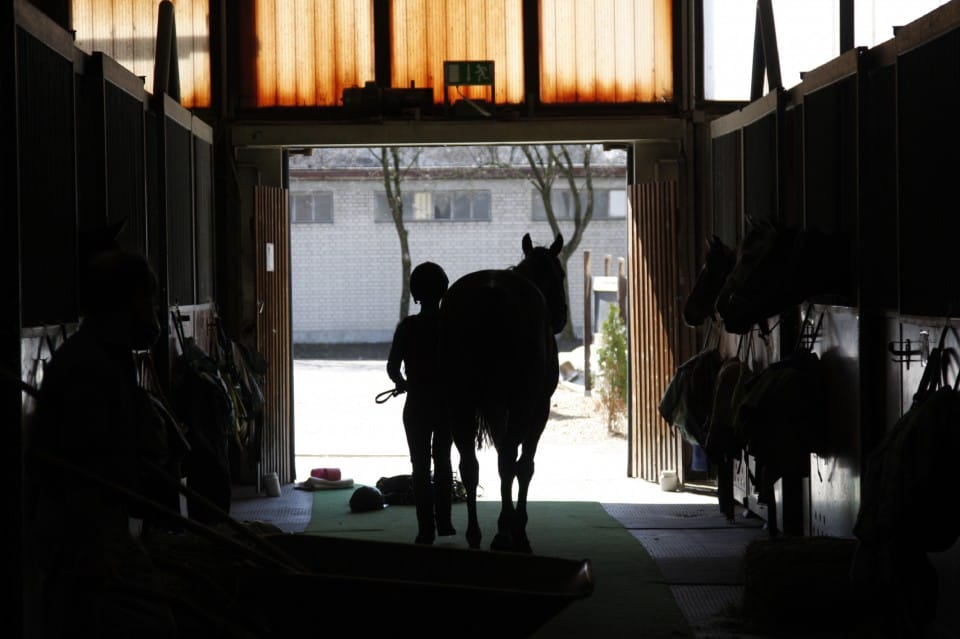
Trainer At The Racetrack
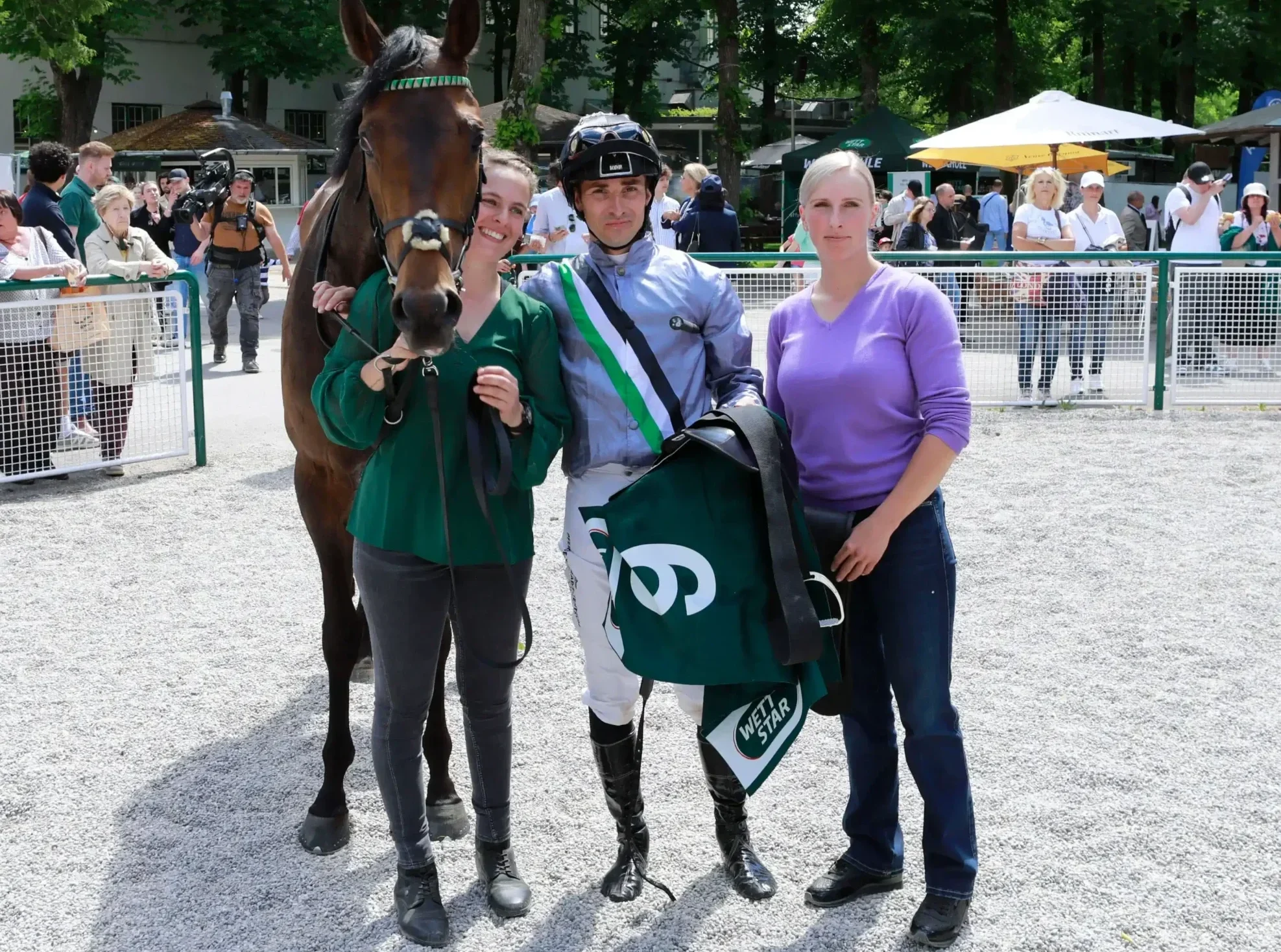
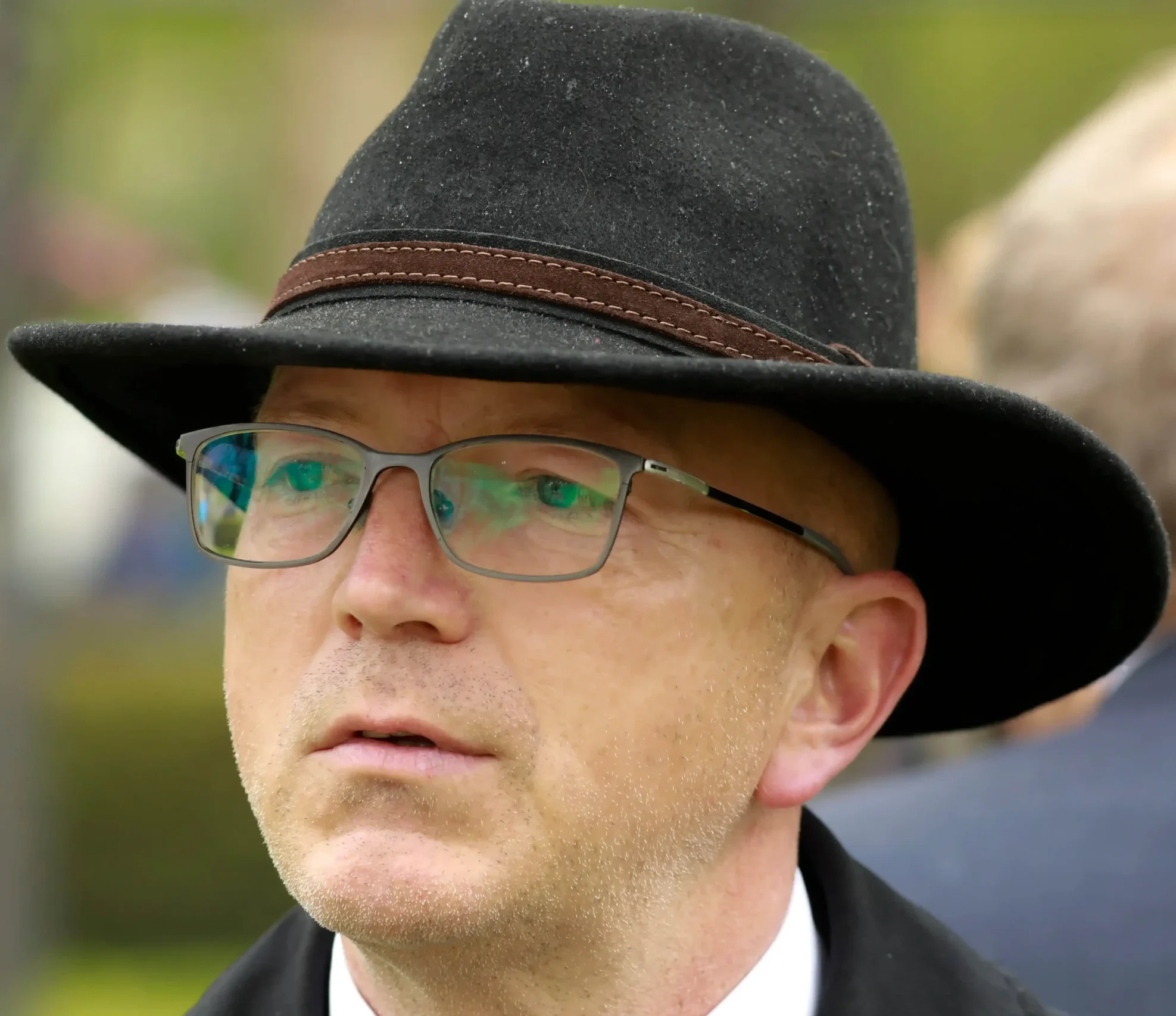
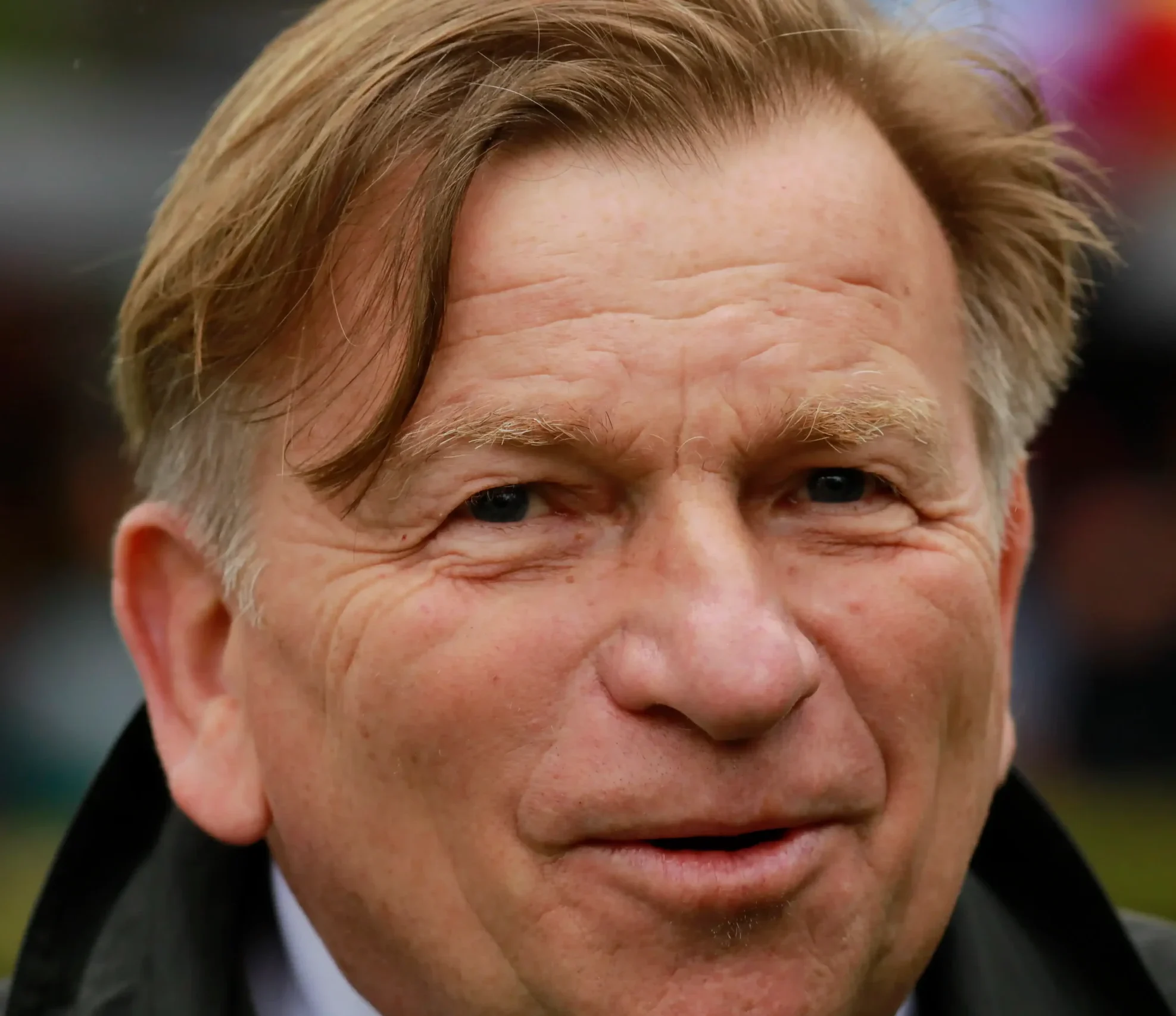

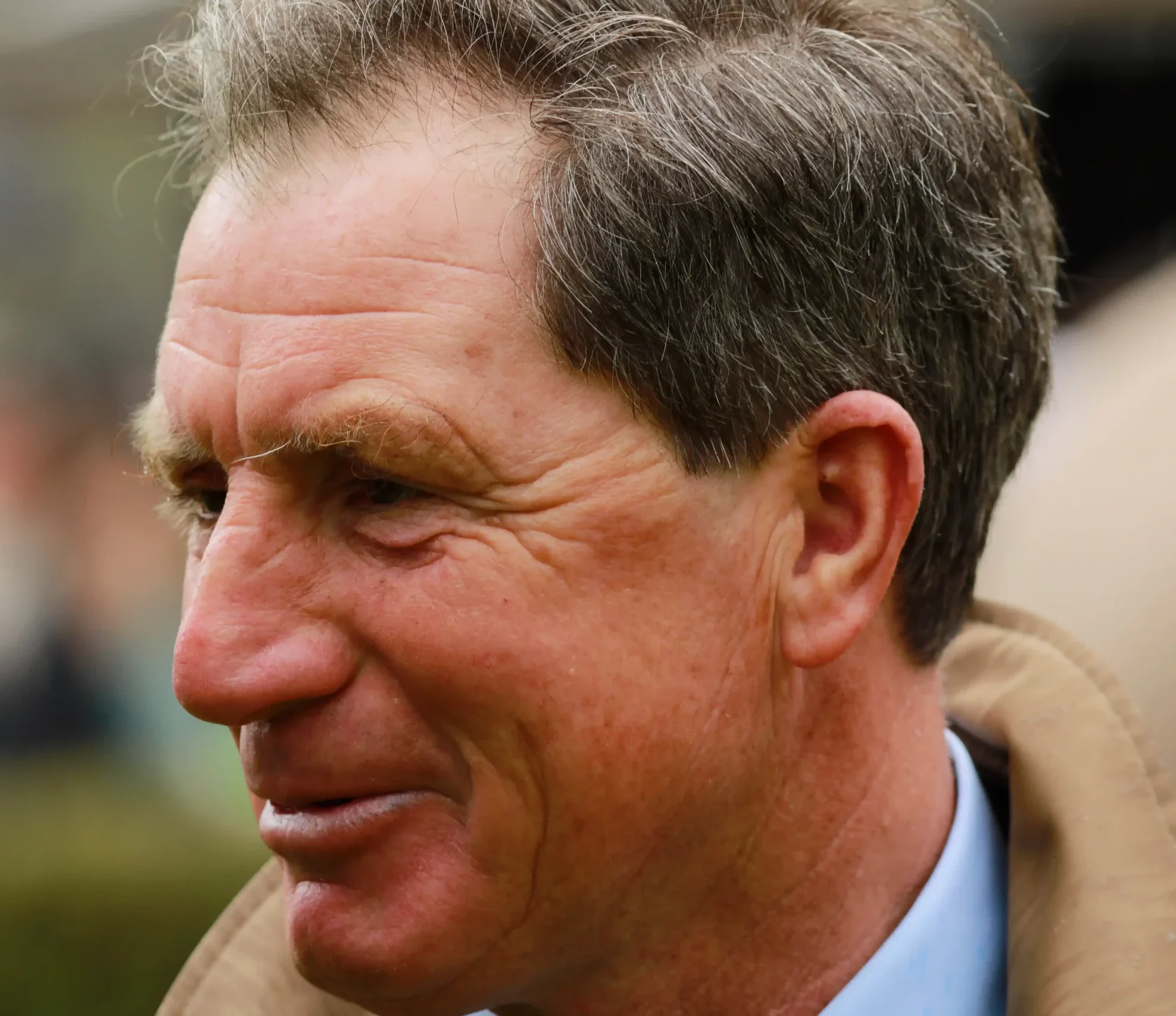
For those who don’t know us yet or would like to know more about us: We, the Bavarian Association of Amateur Racers, have been around since 1989. We are affiliated with the Association of German Amateur Racers, but we are also an independent association that serves a solely non-profit purpose: the goal of supporting young athletes in Bavaria – specifically in one area of equestrian sport, namely amateur racing. We do this by organizing equestrian training courses and clinics, as well as specialist lectures on hippological and veterinary topics – and, of course, above all, by supporting the holding of amateur flat races in cooperation with the Munich Racing Club.
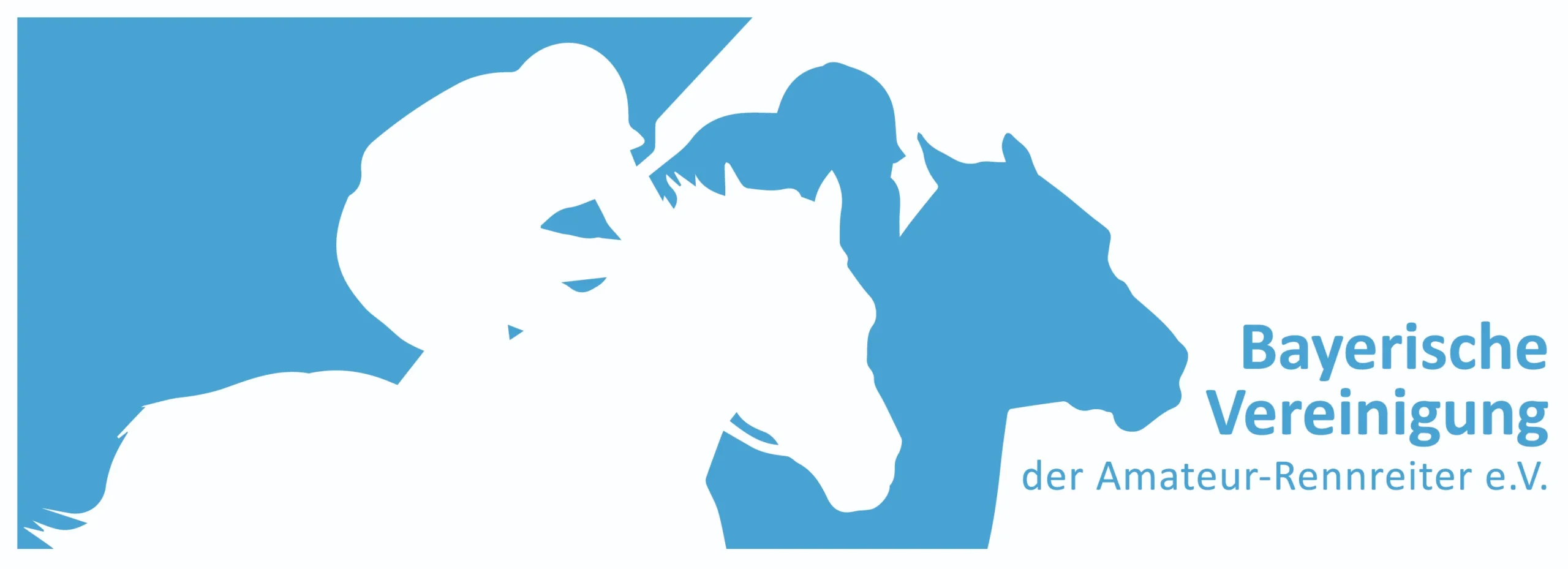
Our members include active amateur racers from Bavaria, as well as those amateurs who look after horses for racing stables and ride for work. We also have a number of supporting members who gratefully support our goals with their contributions and donations.
Throughout the season, five to six amateur races take place each year, all of which are qualifying races for our Bavarian Amateur Championship. At the end of the season, the best amateur racer – or the best rider – is crowned Bavarian Amateur Champion. There are also trainer and owner competitions, with attractive prizes as a thank you to the trainers and horse owners who support our worthy cause.
Below you will find the announcement for the championship competition as well as the current standings of the Bavarian Amateur Championship.
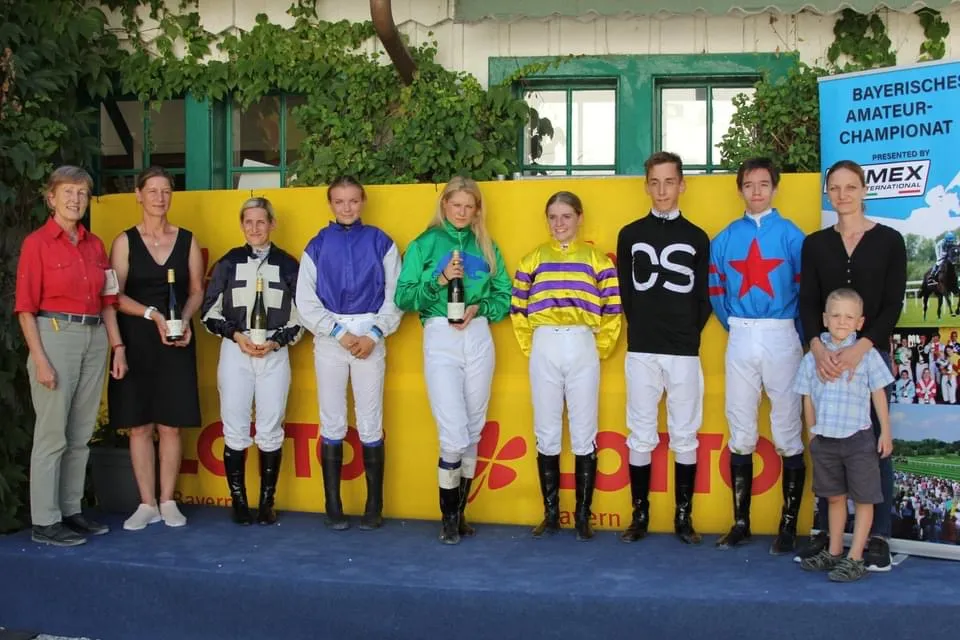
3Since our activities cost money, we’re always happy to welcome more galloping fans who support our good cause with their donations! The annual membership fee for supporting members is only €35; we also gladly accept donations (tax-deductible).
Below, you’ll find our membership application and our bylaws available for download.
If you have any questions about membership or anything related to Bavarian amateur racing, please contact:
Bavarian Association of Amateur Racers
c/o Andrea Schneider (President)
Pfennigweg 10
81825 Munich
Tel. +49 171 4864021
Email: amateurrennreiter@yahoo.com
We look forward to hearing from you!